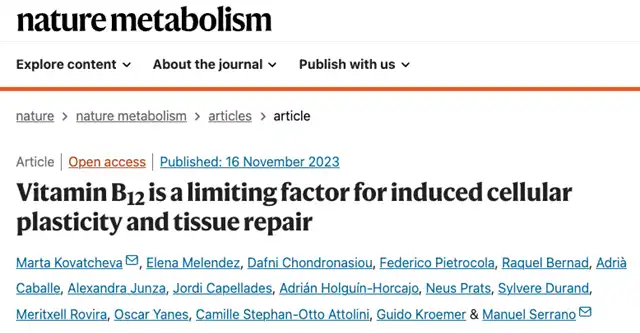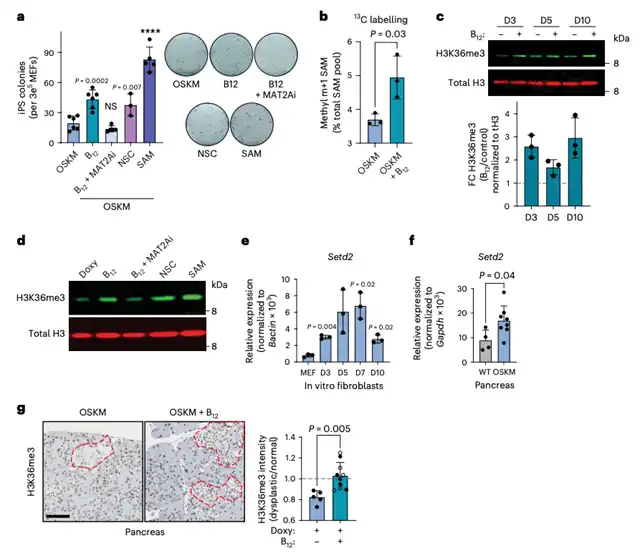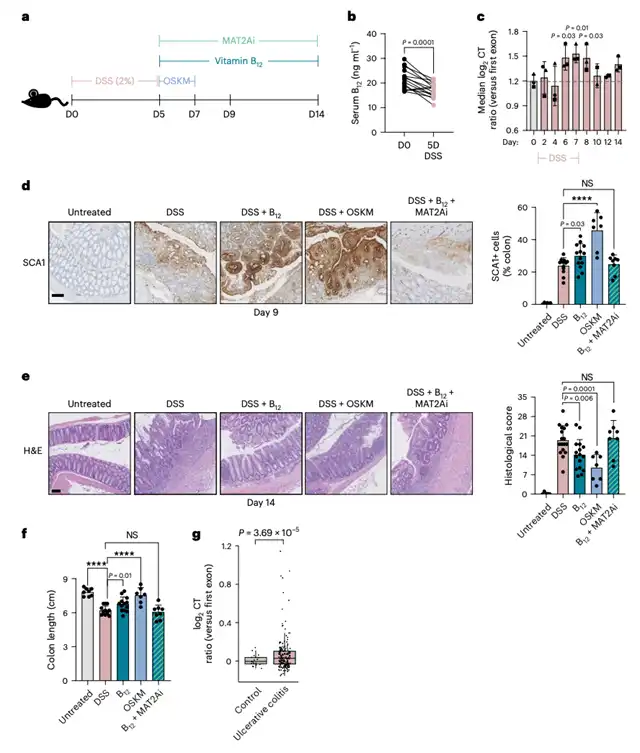Vitamin B12 Plays a Crucial Role in Cell Reprogramming and Tissue Regeneration
- Normal Liver Cells Found to Promote Cancer Metastasis to the Liver
- Nearly 80% Complete Remission: Breakthrough in ADC Anti-Tumor Treatment
- Vaccination Against Common Diseases May Prevent Dementia!
- New Alzheimer’s Disease (AD) Diagnosis and Staging Criteria
- Breakthrough in Alzheimer’s Disease: New Nasal Spray Halts Cognitive Decline by Targeting Toxic Protein
- Can the Tap Water at the Paris Olympics be Drunk Directly?
Vitamin B12 Plays a Crucial Role in Cell Reprogramming and Tissue Regeneration
- Should China be held legally responsible for the US’s $18 trillion COVID losses?
- CT Radiation Exposure Linked to Blood Cancer in Children and Adolescents
- FDA has mandated a top-level black box warning for all marketed CAR-T therapies
- Can people with high blood pressure eat peanuts?
- What is the difference between dopamine and dobutamine?
- How long can the patient live after heart stent surgery?
Vitamin B12 Plays a Crucial Role in Cell Reprogramming and Tissue Regeneration
Cell reprogramming involves the loss of differentiated cell identity followed by the acquisition of embryonic stem cell pluripotency, achieved by simultaneous expression of the transcription factors OCT4, SOX2, KLF4, and MYC (OSKM, also known as the Yamanaka factors). In 2006, Professor Shinya Yamanaka successfully induced pluripotent stem cells (iPS cells) by introducing these four transcription factors into mouse fibroblasts using retroviral vectors, earning him the 2012 Nobel Prize in Physiology or Medicine.
In recent years, it has been demonstrated that this process involves intermediate states where cells gain varying degrees of plasticity and differentiation potential, potentially impacting regenerative medicine and organ repair extensively.
Continuous expression of OSKM factors in mice can reproduce complete reprogramming of cellular pluripotency, but this process may ultimately lead to teratoma formation. Interestingly, brief expression of OSKM leads to molecular and physiological features of regeneration, including enhanced tissue regenerative capacity. However, our understanding of in vivo reprogramming through OSKM factors remains incomplete, with concerns about low efficiency, high risks, and potential development of teratomas and cancer.
Recently, researchers from the Barcelona Institute of Science and Technology and the anti-aging company Altos Labs published a study titled “Vitamin B12 is a limiting factor for induced cellular plasticity and tissue repair” in Nature Metabolism.

Vitamin B12, a well-known micronutrient traditionally recognized for its role in maintaining neural function, supporting red blood cell production, and promoting DNA synthesis—critical processes for overall health—has been found to play a crucial role in cell reprogramming and tissue regeneration.
Considering the abundance of vitamin B12 in a normal diet, simple supplementation significantly enhances reprogramming efficiency. The study also validated this in a mouse model of ulcerative colitis—supplementing vitamin B12 accelerated tissue repair in ulcerative colitis.
In summary, this research suggests that vitamin B12 is a limiting factor for inducing cellular plasticity and tissue repair, and supplementing vitamin B12 helps improve in vivo reprogramming and tissue repair efficiency.
Role of Vitamin B12 in Cell Reprogramming
In this study, the research team delved into the metabolic requirements of cell reprogramming, discovering that OSKM reprogramming in mice leads to comprehensive consumption of vitamin B12 and molecular characteristics of methionine starvation.
Histone H3 lysine 36 trimethylation (H3K36me3), an epigenetic mark preventing illegal transcription initiation outside promoters, is sensitive to vitamin B12 levels. This provides evidence for a connection between B12 levels, H3K36 methylation, transcription fidelity, and efficient reprogramming. Specifically, high levels of methylation reactions, requiring vitamin B12, are needed for DNA initiation during reprogramming or tissue repair.

Vitamin B12 supplementation enhances H3K36me3 and exerts a cell-autonomous role in reprogramming
Supplementing vitamin B12 enhances H3K36me3, exerting an autonomous role in reprogramming.
During reprogramming or tissue repair, insufficient vitamin B12 leads to significant epigenetic changes, resulting in faulty functions of multiple genes. Supplementing vitamin B12 corrects this imbalance, enhancing gene function fidelity and overall reprogramming efficiency.
Therapeutic Potential for Ulcerative Colitis
The research team validated their findings in an ulcerative colitis model, demonstrating that intestinal cell repair undergoes a process similar to cell reprogramming and benefits from vitamin B12 supplementation. Therefore, patients with intestinal diseases may benefit from vitamin B12 supplementation.

OSKM factor or vitamin B12 improves recovery in colitis mouse model
Dr. Manuel Serrano, the lead author of the paper, stated that this research reveals the crucial role of vitamin B12 in cell reprogramming and tissue repair. These findings bring hope to regenerative medicine, with the potential to benefit patients by improving nutritional intake.
Vitamin B12 and Inflammation Reduction
Dr. Manuel Serrano’s research team also recently published another study, finding that individuals with higher levels of vitamin B12 in their blood have lower levels of inflammatory markers (IL-6 and C-reactive protein). Similar relationships were observed in elderly mice—serum IL-6 levels were negatively correlated with vitamin B12 levels.

These observations suggest that vitamin B12 plays an anti-inflammatory role by reducing these markers, providing valuable insights into the potential health benefits of vitamin B12.
In conclusion, this research advances our understanding of the molecular mechanisms of in vivo and in vitro reprogramming and emphasizes the possibility of safely using vitamin B12 in regenerative medicine, organ damage, and repair to enhance cellular plasticity.
Paper Links:
Vitamin B12 Plays a Crucial Role in Cell Reprogramming and Tissue Regeneration
(source:internet, reference only)
Disclaimer of medicaltrend.org
Important Note: The information provided is for informational purposes only and should not be considered as medical advice.



